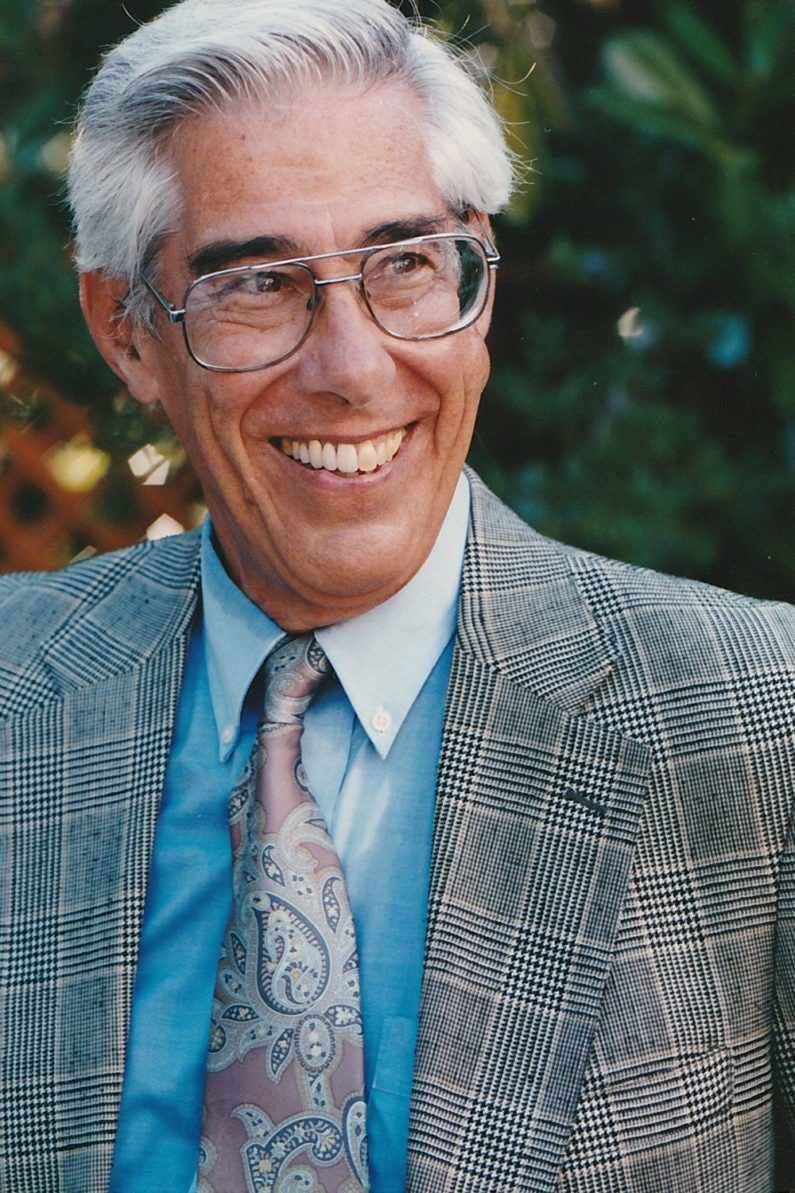Paul Seaver, leading historian of early modern England, dies at 88
A formative scholar of early modern British history, Paul Seaver was also known for his decades of leadership and commitment to undergraduate education.

Paul Seaver (Image credit: Seaver family)
Paul Seaver, a distinguished historian of early modern England and dedicated university citizen, died Aug. 2. He was 88.
Seaver, professor emeritus of history in Stanford’s School of Humanities and Sciences, focused on two major areas in his research: religion and radicalism in the period from 1558 to 1649, and the growth of London and the development of urban culture and society.
“Those who knew Paul will be aware of his quiet and unassuming brilliance. He was a scholar who combined deep expertise in the history of religion with an abiding commitment to the methods of social and urban history that came to prominence in the second half of the 20th century,” said David Como, professor of early modern British history.
“His early, pioneering work reshaped our understanding of English Puritanism, even as it illuminated the wider religious and civic culture of Tudor-Stuart Britain,” Como added. “His interests in religious, urban, labor and family history were woven together in his renowned study Wallington’s World: A Puritan Artisan in Seventeenth-Century London, which stands as one of the great micro-histories of its day.”
Wallington’s World garnered Seaver the British Council Prize in the Humanities in 1986. In addition to numerous articles, he also published The Puritan Lectureships: The Politics of Religious Dissent 1560-1662. Both books were published by Stanford University Press. Seaver was a Fellow of the Royal Historical Society and a recipient of a Guggenheim Fellowship, among other honors.
A principled leader and devoted teacher
Seaver joined Stanford’s Department of History in 1964, and over the years he and Peter Stansky, the Frances and Charles Field Professor of History, Emeritus, built one of the strongest British history programs in the country.
“In many ways, Paul was my closest colleague as the other historian of Britain in the department for 33 years. But the department is a continuing community, so in that sense we were colleagues until last Saturday,” said Stansky. “We had many wonderful years together teaching British history to undergraduates and graduate students, being colleagues in the department and seeing one another both at Stanford and at the national meetings of British historians, as well as spending time together in London. He continued to be an active and important scholar throughout his life. I will so miss his quiet and wise presence.”
A firm believer in the importance of a humanities education, Seaver directed the history department’s first-year Western Civilization Program from 1967-1970 and chaired its successor, the Western Culture Program, from the late 1970s until it was replaced by the Cultures, Ideas and Values program in 1989. He then served as the Christensen Professor and Director of the Program in Cultures, Ideas and Values from 1989 to 1997.
“Paul was one of our most generous supporters of undergraduates and undergraduate education,” said Carolyn Lougee Chappell, the Frances and Charles Field Professor in History, Emerita, and former dean of undergraduate studies. “Repeatedly over the years, when tricky issues surfaced in curriculum and controversies needed to be resolved, we turned to Paul for leadership. We could always trust that he would bring the university community to a strong, fair and academically sound resolution.”
Seaver was known not only for his research and his leadership but also for his inspiring teaching, winning both the Dean’s Award for Distinguished Teaching and the Dinkelspiel Award for Outstanding Service for Undergraduate Education.
“Generations of Stanford undergraduates and graduate students can attest to Paul’s selfless devotion to his students; his understated, meticulous, but utterly captivating style of teaching; and the great wisdom of his counsel,” said Como.
From a dairy farm to the Stanford Farm
Seaver was born in Philadelphia and moved to a dairy farm outside the city with his family, who were members of the Quaker Society of Friends, when he was 10 years old. After beginning his first year at Haverford College, he served six and a half months of time in prison as a conscientious objector, refusing to register for the draft for the Korean War.
He went on to complete his bachelor’s at Haverford and his master’s and doctoral degrees at Harvard University. He taught at Reed College for two years before joining the faculty at Stanford.
“Many long-timers will remember that he, as a Quaker, counseled young men in the late ’60s who faced the military draft,” said Lougee Chapell.
Upon learning of Seaver’s passing, colleagues and former students alike remembered above all his strong moral compass, gentle spirit and profound kindness.
“Paul was probably the most supremely ethical person I ever met, someone who in his own quiet way stood up for what was right and decent no matter the personal cost,” said Stephen Greene, BA ’74, MA ’77, a former student of Seaver’s who now teaches at UCLA’s Anderson School of Management. “His passing at this time simply highlights how much our world needs more people like him.”
Seaver is predeceased by his twin brother, David, and survived by his wife, Kirsten, and their children, Hannah and David.
Listen to Professor Seaver’s oral history as recorded by the Stanford Historical Society.
This story has been updated to correct Professor Seaver’s date of death.
